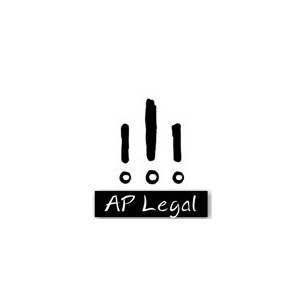Best Debt & Collection Lawyers in Fiji
Share your needs with us, get contacted by law firms.
Free. Takes 2 min.
Or refine your search by selecting a city:
List of the best lawyers in Fiji
About Debt & Collection Law in Fiji
In Fiji, the Debt & Collection law is mainly regulated by the Fair Reporting of Credit Act, the Consumer Credit Act, and the Bills of Exchange Act. These laws aim to protect both the debtor and the creditor and ensure that consumer credit, debt recovery, and related transactions are conducted fairly and transparently. Debt recovery is mainly managed by debt collection agencies, which are subject to strict regulations and guidelines. Failure to comply with these regulations can lead to hefty penalties.
Why You May Need a Lawyer
Individuals and businesses may need legal assistance in Debt & Collection for various reasons. For instance, if you are facing harassment from debt collectors, are unsure of your rights and legal obligations related to debt, or need help navigating through debt recovery procedures, you may need a lawyer to guide and represent you. Businesses may also require legal advice for the efficient recovery of debt from their clients or to ensure compliance with credit reporting and debt collection rules and regulations.
Local Laws Overview
The primary legislations related to Debt & Collection in Fiji are the Fair Reporting of Credit Act, the Consumer Credit Act, and the Bills of Exchange Act. The Fair Reporting of Credit Act regulates the activities of credit reporting agencies and places obligations on information providers and users. The Consumer Credit Act deals with consumer credit transactions and related issues. The Bills of Exchange Act provides regulations for the creation, transfer, and discharge of negotiable instruments such as checks, draft notes, and bills of exchange. They cover a wide range of topics including the responsibilities and rights of creditors and debtors, debt collection practices, interest rates, fees, credit reporting, and dispute resolution.
Frequently Asked Questions
1. Can a creditor garnish my wages in Fiji?
The laws in Fiji do permit wage garnishment by a creditor. However, certain conditions must be met, including gaining a court order.
2. What rights do I have as a debtor in Fiji?
Fijian law provides multiple rights for debtors. These include the right to fair treatment, right to dispute inaccuracies in credit reports, and right to privacy.
3. How are debt collection agencies regulated in Fiji?
Debt collection agencies are strictly regulated under Fijian law. They are subject to licensing requirements, procedural rules, and prohibitions against certain collection practices.
4. Can I be arrested for not paying a debt in Fiji?
Failure to pay a debt is not a criminal offence in Fiji. However, if a court issues an order regarding repayment and you fail to comply with the court order, you could face legal consequences.
5. What happens if I can't pay my debt?
If you’re unable to repay your debt, your creditors may take legal action against you. Solutions such as debt restructuring or bankruptcy may be considered.
6. What are the legal debt collection methods in Fiji?
Legal debt collection methods in Fiji include calls, letters, emails, legal actions, and for secured debts, repossession of collateral. All these methods must be carried out within the bounds of Fijian law.
7. Can a lender charge me interest on the late payment of debt?
Unless otherwise stipulated in your credit agreement, a lender can charge you interest for late payment of a debt in Fiji.
8. How can I dispute an error in my credit report?
If there's a mistake in your credit report, you can dispute it by contacting the credit reporting agency directly and following the outlined dispute resolution procedure.
9. What can I do if a debt collector is harassing me?
Harassment by debt collectors is illegal. You can report such behavior to the law enforcement agencies or take legal action against the debt collection agency.
10. Can I negotiate my debt in Fiji?
Yes, in many instances, you may be able to negotiate your debt with your creditors either directly or through a lawyer or a debt counselling agency.
Additional Resources
In Fiji, the Ministry of Commerce, Trade, Tourism, and Transport oversees matters related to Debt & Collection. Additionally, the Reserve Bank of Fiji and the Consumer Council of Fiji provide resources, information, and assistance regarding debt and credit issues.
Next Steps
If you are in need of legal assistance in Debt & Collection, it's recommended to get in touch with a legal professional who specializes in this field. Consider scheduling a consultation to discuss your case, understand your options, and learn about the applicable laws and procedures. A lawyer can guide you through the complexities of debt and collection laws in Fiji, helping you make informed decisions and protect your rights.
Lawzana helps you find the best lawyers and law firms in Fiji through a curated and pre-screened list of qualified legal professionals. Our platform offers rankings and detailed profiles of attorneys and law firms, allowing you to compare based on practice areas, including Debt & Collection, experience, and client feedback.
Each profile includes a description of the firm's areas of practice, client reviews, team members and partners, year of establishment, spoken languages, office locations, contact information, social media presence, and any published articles or resources. Most firms on our platform speak English and are experienced in both local and international legal matters.
Get a quote from top-rated law firms in Fiji — quickly, securely, and without unnecessary hassle.
Disclaimer:
The information provided on this page is for general informational purposes only and does not constitute legal advice. While we strive to ensure the accuracy and relevance of the content, legal information may change over time, and interpretations of the law can vary. You should always consult with a qualified legal professional for advice specific to your situation.
We disclaim all liability for actions taken or not taken based on the content of this page. If you believe any information is incorrect or outdated, please contact us, and we will review and update it where appropriate.
Browse debt & collection law firms by city in Fiji
Refine your search by selecting a city.












